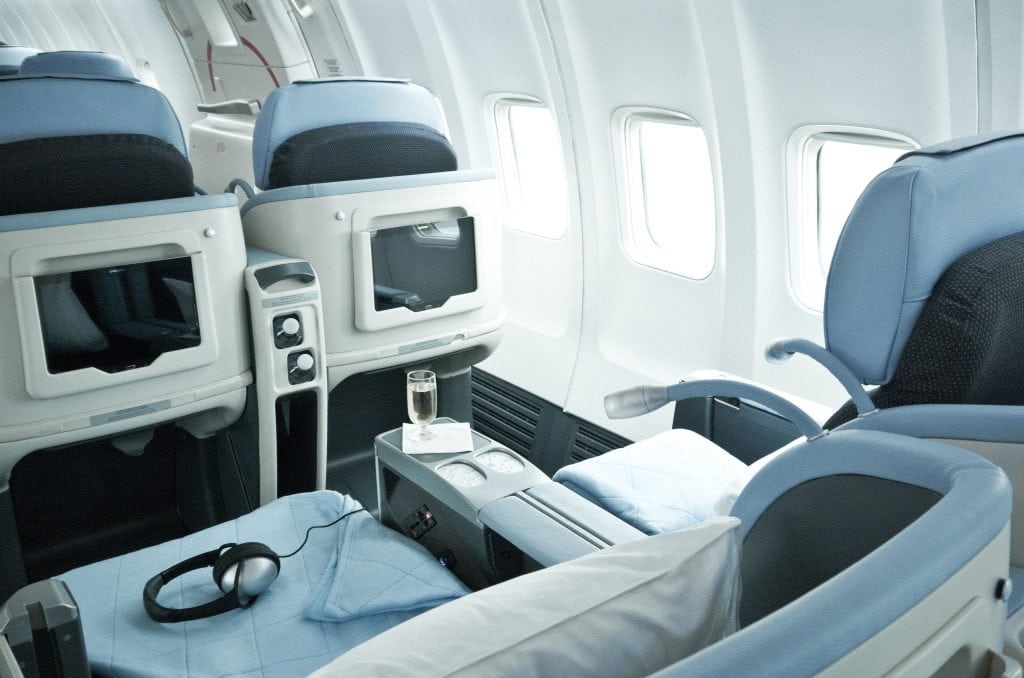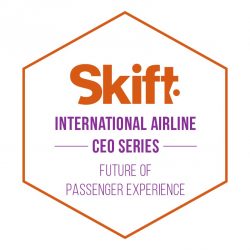Interview: La Compagnie CEO on Why All-Business Class Airlines Can Work

Skift Take

Future of Passenger Experience
To better understand the challenges facing airlines in an age of fluctuating oil prices, rapid growth, and changing passenger expectations, our Future of Passenger Experience series will allow leaders in the industry to explain their best practices and insights.For the founder and CEO of an airline with two aircraft and one route — Paris to Newark —Frantz Yvelin definitely thinks big.
Yvelin founded all-business class airline LaCompagnie two years ago, and though he is only 39, this is his second start-up. The first was L'Avion, which he and his partners sold to British Airways in July 2008 — just before trans-Atlantic business class demand shrunk drastically during the global financial crisis. L'Avion was the only one of the all-premium class airlines of the early 2000s to survive, though it is now called OpenSkies, and its aircraft include a coach cabin.
The other airlines of that era — Eos, MaxJet, and SilverJet — are long gone, and today Yvelin is the only independent entrepreneur trying the model, with La Compagnie flying 74-seat Boeing 757s once or twice per day between Newark and Paris. Until September, La Compagnie also flew from London, but it canceled that route, with Yvelin blaming "uncertainty" caused by the UK's plans to leave the European Union.
The all-business class model has fallen out of favor for several reasons, but the biggest is probably competition. A decade ago, carriers like Air France, American Airlines and Delta Air Lines had mediocre business class products with angled seats and uninspired catering. Most legacy airlines have invested in their cabins since, leaving less room for an upstart to offer a better product. And in many cases, legacy carriers have more aggressively priced business class, making it challenging for an upstart to undercut a larger airline on fares. La Compagnie is able to charge lower fares than legacy carriers, but it does so in part because it has a less luxurious seat than most of its competitors.
Still, Yvelin has high hopes for the model, arguing it can work between New York and several cities in Europe, including Frankfurt, Geneva, Milan and Rome. Eventually, he said, all-business class might even thrive between Paris and Asia. But that sort of growth is not imminent, and it would require La Compagnie to add aircraft. So far, La Compagnie has no orders for new planes, though Yvelin said he hopes to find financing for growth soon.
We spoke with Yvelin in New York in late September to learn more about La Compagnie's model and its plans for the future. This is the seventh in a series of airline CEO interviews we plan for the next several months.
Note: Thi
